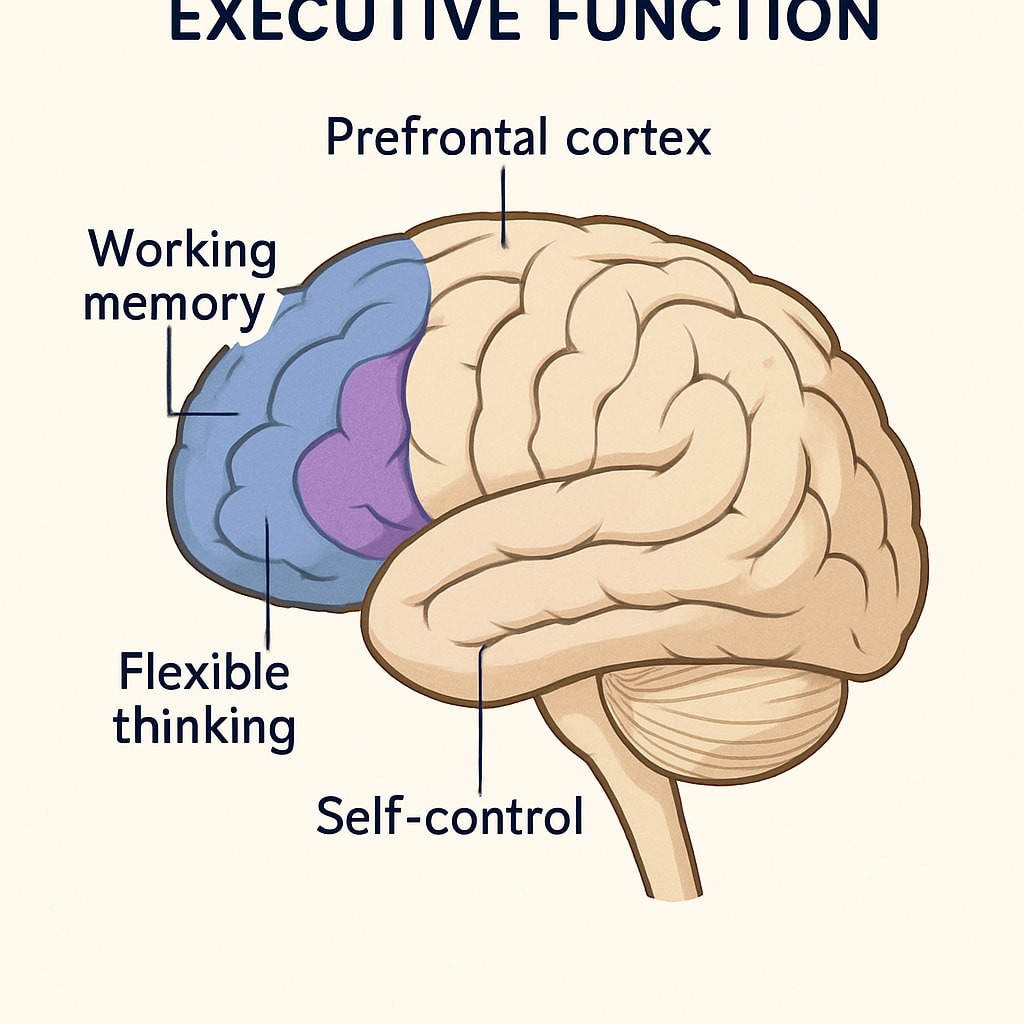Children with special needs, such as those with ADHD (Attention Deficit Hyperactivity Disorder) or ASD (Autism Spectrum Disorder), often face challenges in developing executive function skills. These skills, which include planning, self-regulation, and task execution, play a vital role in academic success and daily life. Parental support is a cornerstone in helping these children overcome such obstacles. By adopting structured routines, incorporating emotional regulation techniques, and leveraging the child’s unique interests, parents can significantly enhance their child’s executive function abilities.
Understanding Executive Function and Its Impact
Executive function refers to a set of cognitive processes that enable goal-directed behavior. These include working memory, flexible thinking, and self-control. For children with ADHD or ASD, deficits in these areas can manifest as difficulty following instructions, managing time, or adapting to new situations. Such challenges can hinder not only academic performance but also social interactions and emotional well-being.
However, executive function is not a fixed trait; it can be developed through consistent practice and tailored strategies. Parents play a crucial role in this development, as they are often the first to recognize their child’s unique needs and strengths.

Parental Strategies for Enhancing Executive Function
Parents can adopt several practical strategies to support their child’s executive function development. Below are some of the most effective approaches:
- Structured Routines: Consistent daily schedules help children understand expectations and reduce anxiety caused by unpredictability. For example, having a set time for homework, meals, and bedtime can create a sense of stability.
- Visual Supports: Use visual prompts such as charts, checklists, or timers to guide tasks. These tools can help children break down complex activities into manageable steps.
- Emotional Regulation Training: Teach children coping strategies like deep breathing or mindfulness exercises to manage frustration and stay focused. Parents can model these techniques during challenging moments.
- Positive Reinforcement: Celebrate small successes to build confidence and motivation. Rewards can be as simple as verbal praise or a favorite activity.
For more information on executive function, you can visit the comprehensive overview provided by Britannica.

Leveraging Interests to Foster Growth
Children with special needs often show intense focus on specific interests or topics. This can be transformed into an advantage when developing executive function skills. For instance:
- Interest-Based Projects: Encourage the child to plan and execute a project related to their passion, such as building a model or creating artwork. This helps practice goal-setting and task management.
- Gamification: Introduce learning games that incorporate their favorite themes. For example, if a child loves dinosaurs, use dinosaur-themed puzzles or math activities.
By aligning executive function training with the child’s interests, parents can make the process both enjoyable and effective.
Building a Supportive Environment
Creating a nurturing environment involves not only addressing the child’s needs but also equipping parents with the right tools and mindset. Here are additional tips for building a supportive framework:
- Parent Education: Attend workshops or read materials to understand executive function and its challenges. Knowledge empowers parents to implement informed strategies.
- Collaborate with Educators: Work closely with teachers and therapists to create a consistent approach between home and school.
- Self-Care for Parents: Supporting a special needs child can be demanding. Parents should prioritize their own well-being to maintain resilience and patience.
For further reading on ADHD and executive function, explore resources like Wikipedia’s ADHD page.
As a result of these efforts, children can gradually develop the “invisible wings” that enable them to soar independently, navigating both academic and personal challenges with confidence.
Readability guidance: Use short paragraphs and lists to present key points clearly. Incorporate transition words to improve flow, keeping sentences concise and active voice dominant.


